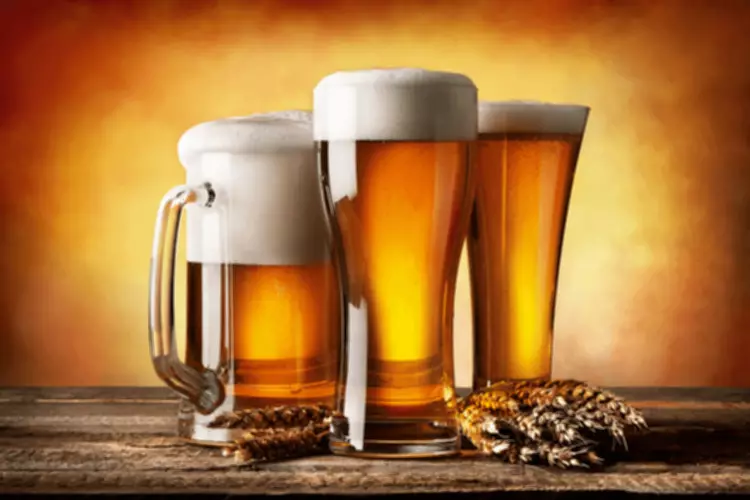3 Stages of Alcoholism

Alcoholism is a chronic disease caused by a craving for alcohol with the formation of mental and then physical dependence. It is one of the most serious problems in modern society. In this article, we go over the levels of alcoholism or stages of alcoholism a person can go through in their life.
Stages of alcoholism
Initially, when the disease itself has not yet developed, individuals are showing signs that they are at risk of developing a dependence. Alcohol drinking takes place for example in the company of friends, and the person does not get drunk to unconscious state or other negative consequences. The duration of this pre-alcoholism stage depends on the individual characteristics of the person.
At this stage, the person is indifferent to whether there will be a drink in the near future or not and can stop drinking alcohol at any time. Also, having drunk in the company, they do not drink afterward alone. The danger lies in the fact that with such a regular drinking pattern, the person can move into the early stages of alcoholism.


Take back control of your life and start on the road to recovery now.
Early stage of alcoholism
The first stage of the disease is characterized by an increase in the amount of alcohol consumed, the development of the body’s tolerance to alcohol. The main signs of the first levels of alcoholism are:
- the disappearance of the gag reflex
- drinking alcohol alone (after work, before meals, etc.)
- a desire to drink at a seemingly inappropriate moment (on the road, at night)
- an appearance of memory gaps, a change in the nature of intoxication,
- scandals in the family, problems with work colleagues
- a loss of interest in aspects of life such as politics, literature, hobbies.
Note that if it is impossible to drink, the craving for alcohol temporarily disappears. However, when such a chance arises, the control of the amount drunk at the early stages of alcoholism disappears.
Middle stage of alcoholism
With the progression of alcoholism, the alcoholic’s tolerance to alcohol increases significantly. Without noticing it, the person takes very large doses. The behavior changes and becomes unpredictable, and sometimes dangerous. Physiological dependence on alcohol is developing. The hangover in the morning is heavy, the efficiency drops sharply. There is a desire to get drunk in any way.
The condition is accompanied by physiological changes – nausea, increased blood pressure, abnormal heartbeat, tremors of the limbs, and fever are common symptoms at the middle stages of alcoholism. The mood is depressive and gloomy. The changes affect the alcoholic’s personality. This manifests itself in indifference to one’s social status, deceit, unbearable temper, and anger.
There is a loss of active attention. Such individuals have an awareness of the harm and consequences of their addiction, but there is no effort to fight and it is easier to give in to desire. This stage of the disease is characterized by the fact that in a state of intoxication, self-control disappears and there is no feeling of shame or awkwardness.

End stage of alcoholism
This is the last, most difficult stage in terms of treatment. Alcohol is consumed almost daily, a person is in a binge state. What changes are characteristic of the third stage? The further progression of alcoholism led to severe personality degradation, changes in the psychological state. In addition, physical changes characteristic of this disease are developed and include:
- alcoholic gastritis
- cirrhosis of the liver
- alcoholic pancreatitis
- alcoholic cardiomyopathy (diseases of the heart muscle)
- alcoholic neuropathy (damage or dysfunction of nerves)
- alcoholic encephalopathy (damage or disease that affects the brain)
- other diseases not related to alcoholism worsen.
At this stage, impaired movement and even paralysis of the limbs also develop. There are also many psychological symptoms, such as hallucinations and alcoholic delirium. The alcoholic requires treatment, preferably with hospitalization and medical supervision. Treatment of such patients is hindered not only by their mental state but also by physical changes throughout the body.

This can be a difficult journey, but you don’t have to go it alone. Let us be your guide and provide you the environment needed to regain control of your life and begin the path to recovery.
Conclusion
Several stages of alcoholism are distinguished – from weak attraction to an irresistible craving that prevails over all other feelings, desires, and needs. However, with any severity of symptoms and stage of alcoholism, it should be treated as soon as signs of the disease are identified and the opportunity arises to convince the alcoholic of the need to seek help. Only specialists should be involved in the treatment of addiction. Prolonged inaction or attempts to overcome alcoholism on your own can only lead to the progression of alcoholism, neglected stages of alcoholism, and create additional difficulties in treatment.




